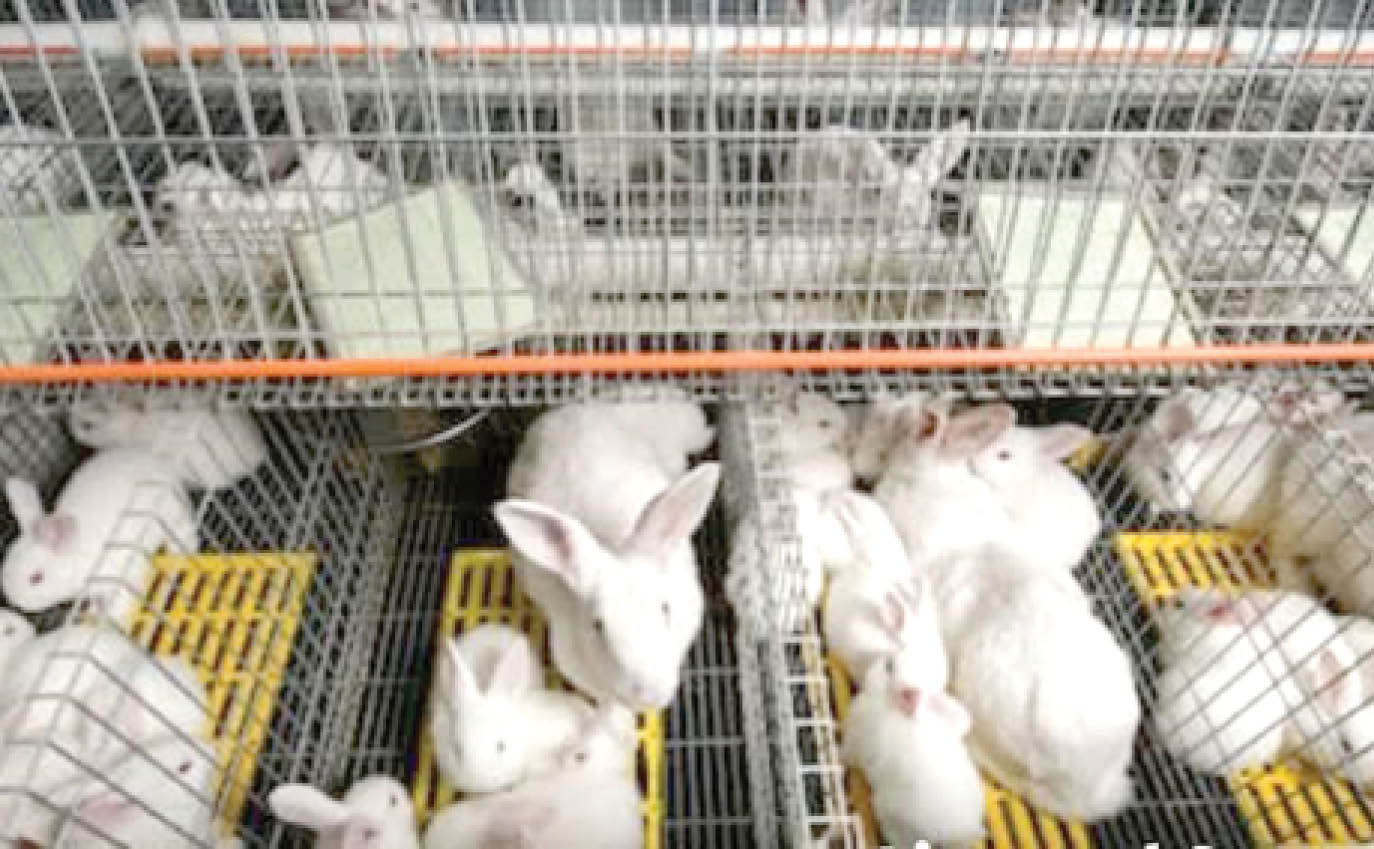Hundreds of rabbit farmers in Niger State have decried lack of access to markets to sell, as well as government’s neglect despite the huge health and revenue potentials and other crucial benefits associated with the rearing of rabbits.
Findings by Daily Trust on Sunday revealed that though rabbit farming does not receive much attention, both from the government and the society as poultry, fishery and other livestock subsectors do, its benefits surpass those of chicken and cattle, especially health-wise and crop production.
Fatima Yusuf Nuhu, Livestock Officer I, Rabbit Production Unit, Niger State Livestock and Fishery Development, and the secretary, Rabbit Farmers Association in the state, told our correspondent that while rabbit meat is healthier than those of chicken and cow, the urine is insect repellant that can be used to control pests and insects from attacking crops by farmers.
She said there were more than 100 registered rabbit farmers, including women in the state, saying that rabbit farming is less time and space consuming but farmers lack government’s attention to grow their businesses.
She said most farmers were doing well but faced with the challenges of funding and lack of market to sell their rabbits.
“The major challenge facing rabbit farmers in Niger State is acceptance. Secondly, the awareness is very low; and thirdly, lack of finance. And because of lack of awareness, a lot of people don’t know that they consume rabbits. Therefore, we need much awareness in the rabbit farming system.
“Most farmers are doing well with a lot of rabbits, but the market is not there because people here don’t consume it much. The people that patronise us are tertiary institutions that are using them for practical. The last time, I brought about 200 to Niger State from NAPRI, which I distributed to IBB University, Lapai; College of Agriculture, Mokwa and the Federal University of Technology, Minna.
“We supply rabbits from Niger State to Ibadan, Lagos and Ilorin with high demands. And it is not just the rabbit they want, they also want the fore and the urine because of the importance of these things; they export them. The fore is being used to produce carpets, towels, cardigans, machine leathers and a lot of things. So, they buy the fore in kilograms. The last time I knew, a kg of rabbit fore was N6,000. Also, the demand for the rabbit urine is high. As I speak with you, someone has demanded for 20 litres of urine and I have not been able to supply.
“My unit in the Niger State Ministry of Livestock and Fishery Development has been in a bad shape for quite some time now. Government’s attention is not there because they don’t know the importance of rabbit farming. The government needs to pay attention to rabbit farming and make the state a hub and a lot of revenue can be generated.
“The demand for urine is very high but we don’t have modern cages. And you can’t take urine without modern cages.
“The urine is a very strong insect repellant. Wherever you apply rabbit urine you won’t even see flies there. One litre of rabbit urine can be dissolved in 20 litres of water and can be sprayed in your farm as fertiliser. If you spray it on your crops, such as rice, you will never see any insect close to it. But people will only start venturing into it when they know about all these things,” she said.
She added that rabbit meat was pure white without cholesterol, and good for diabetic patients, adding, “Rabbit meat boosts the immune system and sperm count; hence fertility. These are animals that people should rear, even in their houses because of huge health benefits.”
She also said, “There are market opportunities for rabbit farming. Right now, people have been calling me that they need it and I have been trying to supply. There are lots of demands for rabbit but the supply is very low. The supply is very low in Niger State because a lot of farmers that want to venture into it don’t get to sell at the right time.
“Rabbit meat is healthier for consumption than that of chicken, but the awareness is low.”
She called on the state government to empower citizens in rabbit farming as it was done in other states like Imo, with the supply of modern cages. According to her, a pair of rabbit now costs between N4,000 and N5,000, and they can easily multiply.
“The government can come in to empower women on rabbit farming. The least a female rabbit can kendle in a month is 10 babies; and it is a business you don’t need much space. They are very easy to rear. And they are not prone to diseases like chicken. It is less time-demanding and they get used to what you feed them with.
“I have been to houses to give free treatment to rabbit farmers and I saw a woman who fed her own with leftover food. They also take pap; they take fresh mango leaves; they eat carrots. They even eat chicken feeds,” she said.
Another rabbit farmer, Yakubu Abdullahi, who rears them in his house in the Unguwan-BiriaArea of Minna, said he started farming in 2018 with two rabbits but now has over 30, apart from those he had sold.
He said he had wanted to expand his farm for years but lacked fund to get a bigger space. He called on the state government to empower rabbit farmers, just like other livestock subsectors to enable them enjoy the full potentials in the sector.
“Rabbit farming has become a means of livelihood. I don’t have any other job. But my major challenge is lack of fund to expand. I need land to build rabbit farming. They are easy to rear. My own even eat cabbage and some even eat watermelon,
“I also face the challenge of marketing. They give birth regularly, but it takes a long time for me to get buyers. I get buyers only when livestock students are writing their projects or doing assignments or practical. However, sometimes some people do come to buy one or two to eat,” he said.
Mr Abel Nmadu, another rabbit farmer in Sonmajiko village, Gbako Local Government Area of the state, said he rarely sold rabbit due to lack of access to buyers.

 Join Daily Trust WhatsApp Community For Quick Access To News and Happenings Around You.
Join Daily Trust WhatsApp Community For Quick Access To News and Happenings Around You.


